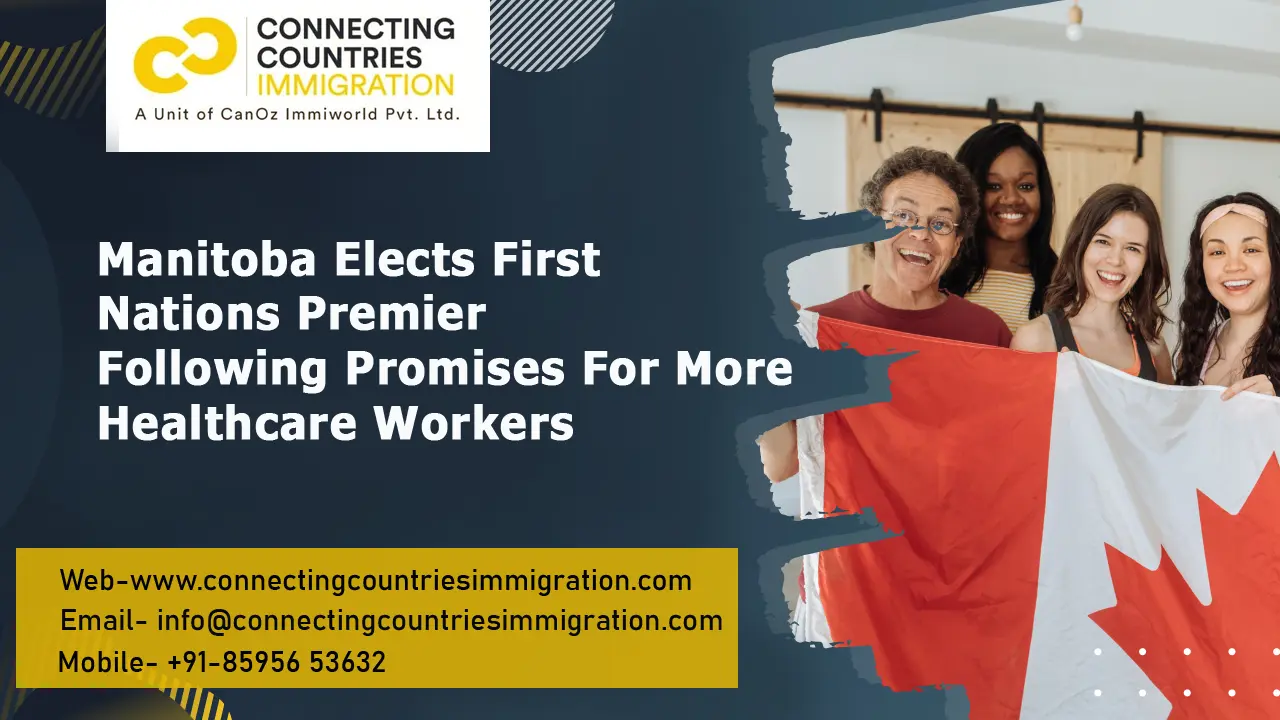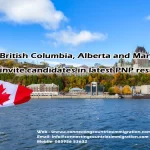Manitoba made history last week by electing Canada’s first First Nations leader.
On October 3, Wab Kinew, the leader of Manitoba’s NDP, was elected to succeed Conservative Premier Heather Stefanson. He is a former rapper, novelist, and journalist who served as the University of Winnipeg’s first director of Indigenous inclusion. In 2017, he was elected leader of the Manitoba NDP.
Despite his unprecedented victory as a First Nations premier, Kinew is widely regarded to have won the race due to highly detailed promises to enhance the provincial healthcare system.
To keep these pledges, Manitoba will most likely require additional newcomers to fill open positions.
Kinew, for example, has committed to hire 300 nurses and 400 physicians over the next four years and to form a task force to oversee a recruitment campaign.
He has also promised to hire 200 paramedics by the end of his first term, to expedite accreditation for globally educated health professionals, and to restore health coverage for international post-secondary students.
Manitoba is looking for international candidates.
The amount of healthcare personnel pledged by Kinew corresponds to a report issued last summer by Doctors Manitoba. According to the research, in addition to hiring from abroad, the province should explore hiring healthcare specialists from the United States.
Manitoba is now leading a recruitment campaign for Filipino nurses. The province says it will help nurses in the Philippines navigate the immigration process and will provide paid licensing and bridging courses as needed. It will also include paid airfare to Manitoba, an allowance for lodging, as well as workplace orientation, coaching, and one-on-one support.
In a July release, the province stated that more than 300 internationally educated nurses from the Philippines had accepted job offers to serve at various sites across Manitoba.
Immigrate to Manitoba.
Manitoba has long been a pioneer in Canadian immigration policy. The province established the first Provincial Nominee Program (PNP) in Canada in 1998.
The PNP is a program of economic immigration controlled by each Canadian province and territory (with the exception of Nunavut and Quebec, which have separate agreements with the federal government).
The initiative permits provincial governments to choose immigration candidates who will best fill vacancies in the provincial labour force and boost the local economy.
The Manitoba Provincial Nominee Program (MPNP) welcomed 418 new immigrants in its first year. Manitoba will receive 9,500 nominations in 2023.
The program was deemed so successful that other provinces joined it, and it is today the most popular choice for economic immigration to Canada. According to the Immigration Levels Plan for 2023-2025, 117,500 immigrants would be admitted every year through the PNP by the end of 2025.
Manitoba has increased the amount of PNP draws that choose candidates for certain in-demand industries such as healthcare, transportation, manufacturing, hospitality, and more throughout 2023.
The province additionally introduced a Strategic Recruitment Initiative for Manitoba firms who are confronting a skilled labour shortage. On September 28, Manitoba held its largest PNP draw of the year, with 1,072 individuals receiving Letters of Advice to Apply as a result of this program.
The Initiative operates in the same manner as the federal Temporary Foreign Worker Program (TFWP). Employers may be qualified to hire individuals from the Manitoba Skilled employees Overseas stream of the MPNP if they can establish an urgent need for skilled employees that cannot be satisfied by the local workforce.
Indigenous Population in Canada
According to Census 2021 data from Statistics Canada, there are 1.8 million indigenous peoples in Canada, accounting for 5% of the total population.
Western Canada is home to more than 55% of them. Kinew’s election marks an important step forward in First Nations participation in Canada.
Furthermore, the census discovered that Winnipeg had 90,990 indigenous people, the highest number of indigenous people in the country. Manitoba has 63 First Nations, including six of Canada’s top twenty largest bands.
Prime Minister Justin Trudeau congratulated Kinew on his historic victory and met with him the next day about improving healthcare and housing and moving forward with reconciliation with Indigenous Peoples.
Canada has recently begun to take steps toward reconciliation with indigenous peoples around the country for the racially motivated abuse they have faced since the country was originally colonized by European immigrants.



